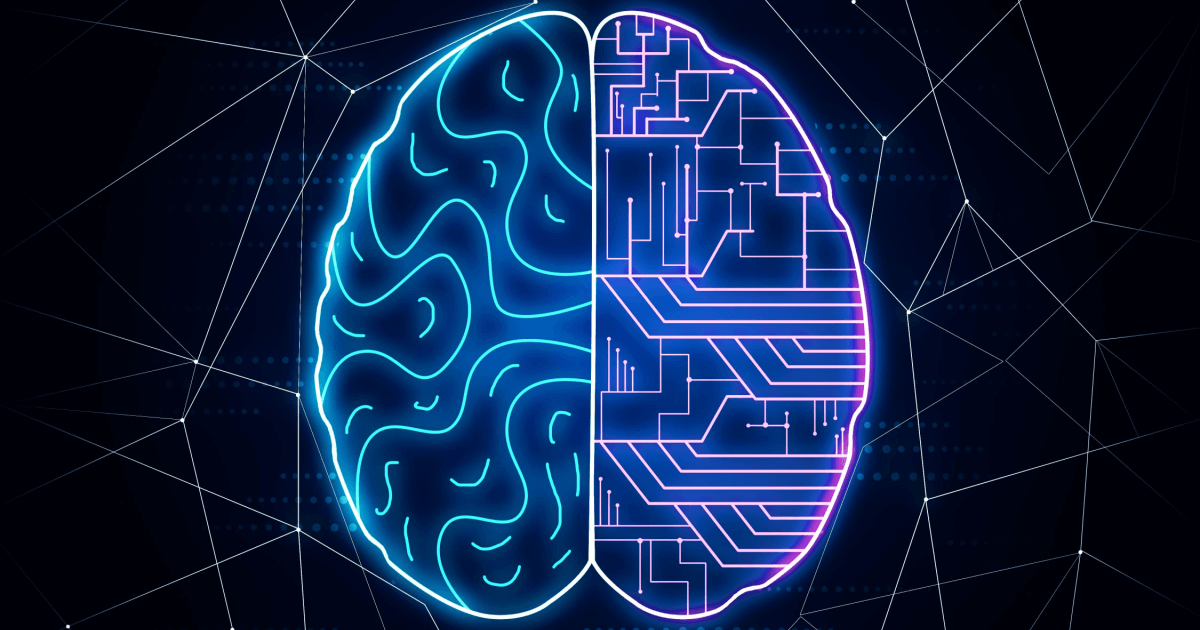August 14, 2023
When you think of artificial intelligence (AI) your mind’s probably drawn to Skynet or Blade Runner. Evolved, sentient beings, often with a desire to rise up against humanity, weirdly. While we’re not quite there (yet) AI technology is certainly booming. Especially when it comes to using AI in e-commerce marketing.
Artificial intelligence (AI) is no longer “on the rise” or simply a passing trend — this disruptive technology is here to stay. In our 2023 AI research report, a third of people said they’d used generative AI tools. Of those folks, 55% said they’d use them again.
According to research from McKinsey, the impact of generative AI on productivity could potentially add trillions of dollars in value to the global economy. As e-commerce leaders, there’s multiple ways it can work for us — to save time and resources and ultimately help our businesses grow.
Chapters:
- Three key benefits of AI marketing for e-commerce
- How AI marketing works
- Top applications of AI marketing
- Drive your marketing forward with AI
Three key benefits of AI marketing for e-commerce
AI helps create smoother and more efficient internal operations that extend to the customer during the buying process. As Benj Fein, Group Project Manager at Bazaarvoice, puts it, “AI lowers the cost of your workflows so you can work faster and smarter.”
Here’s the top three key benefits.
1. Improved marketing efficiency
AI empowers marketing teams to automate tasks so they can work smarter and achieve more significant results. Using tools with these automated capabilities takes the more time-consuming tasks off your plate, so you have time to focus on creating successful marketing campaigns and meeting company goals.
AI lowers the cost of your workflows so you can work faster and smarter
It’s not just simple tasks that can be automated, either. E-commerce companies can employ AI to automate a lot of different marketing functions, including email campaigns, social media posts, ad targeting, and content optimization.
AI-driven tools analyze customer data and behavior to deliver personalized and timely content, streamlining processes and increasing efficiency.
2. Faster customer feedback and CX insights
When it comes to customer feedback analysis, AI achieves quicker and more detailed insights than traditional methods. Using natural language processing (NLP), AI can decipher customer experience and sentiment signals, like keywords linked to touchpoints and activities, and emotions that correlate with complaints or positive experiences.
Other tools like customer satisfaction surveys and Net Promoter Scores can’t extract this kind of nuanced data.
The CX insights that AI can unearth have a range of business benefits for marketing professionals. AI can reveal misalignment in customer pain points, expectations, and unmet needs. This information can help treat CX issues in real-time, as well as inform ongoing processes, procedures, and strategies.
For example, AI can analyze customer behavior, purchase history, and preferences which is information you can use to offer personalized recommendations.
A better understanding of CX can improve staff training to provide better shopping experiences. This, in turn, leads to customer retention, loyalty, and long-term growth.
3. Personalized marketing messages
The use of AI in crafting targeted marketing messages has become increasingly common, offering e-commerce companies a powerful tool to streamline their communication strategies. AI uses keywords and sentiments to create highly personalized content that aligns with customer preferences.
Using the feedback and insights generated by AI, e-commerce businesses can now craft marketing messages that foster more meaningful connections with individual customers.
A common example of this is automated A/B testing. AI can efficiently evaluate different message variations and identify the most effective ones based on real-time customer responses and engagement metrics. This iterative approach allows marketers to continuously refine their messaging strategies and deliver content that maximizes customer engagement and conversion rates.
How AI marketing works
AI e-commerce marketing uses data to assess customer behavior and intent through machine learning. AI tools can then take action by interacting with customers or providing predictions and recommendations for the appropriate business departments.
Because AI relies on data, e-commerce companies need to have data resources in place, including customer relationship management (CRM) software, campaign insights, and website data. They also need to establish goals for using AI and have internal or outsourced experts train on the technology. That way, you get the desired outcomes based on those goals. Part of AI’s capability is to automatically improve its performance with experience and management.
The companies experiencing the best results from AI are the ones that use advanced data, technology, and models in addition to core best practices. So, having an internal or third-party team dedicated to AI and data development will yield the best ROI.
Applications of AI marketing
Deloitte estimates the generative AI market will likely double every other year for the next ten years. You can capitalize on this growing trend by adopting AI for some of your marketing functions. Here’s a few common applications of AI marketing.
Conducting keyword research
E-commerce companies can use AI to supercharge their keyword research efforts, gaining valuable insights into customer behavior and preferences.
AI augments traditional keyword research by leveraging its capabilities in NLP and data analysis. When you employ an AI-driven tool like Jasper or Surfer SEO, you can quickly process large amounts of data from search engines, websites, and social media platforms to identify relevant keywords and uncover hidden patterns in customer search behavior.
Using automation, you can uncover the words and phrases that resonate most with the target audience, enabling you to tailor your content and product offerings accordingly. This level of personalization can lead to better customer experiences and higher satisfaction. According to McKinsey, 71% of people expect brands to personalize their interactions, and 76% of people get frustrated when interactions aren’t personalized.
AI’s ability to analyze vast data sets quickly and accurately allows for real-time keyword monitoring. This means that e-commerce companies can stay on top of emerging trends and adapt their keyword strategies promptly, maintaining a competitive edge in the fast-paced online market.
You can incorporate these AI-generated keywords into your website copy, social media discussions, product descriptions, advertising campaigns, and more. By adding these keywords to your website copy, more potential customers will find you online.
And because the AI did the heavy lifting with the keyword research, your team has the time to engage directly with those potential customers.
Implementing voice commerce
Voice commerce refers to the ability for consumers to use voice commands for product search, discovery, and even purchasing. Globally, over four billion digital voice assistants are in use, including Apple’s Siri and Amazon’s Alexa. It’s a quick, convenient way for people to take an action — like shopping.
Voice commerce eliminates the need for manual input, which streamlines the purchasing process significantly. Users can simply say a command and the AI-powered voice assistant quickly responds with relevant product options and information. This level of convenience and speed saves valuable time for consumers, allowing them to complete purchases effortlessly, no matter where they are or what they’re doing.
Enable these digital voice assistants for your e-commerce app and website so customers can use them to browse and buy. You can register your business with Siri, Alexa, or other digital voice assistants, so customers can easily find your brand and products through voice commands on their devices.
Creating effective advertising copy
Use AI to craft compelling advertising messages that engage your target audience effectively. AI tools that use NLP can assess the language and tone that resonate best with your target audience. You can use these tools to make sure your ad copy aligns with your brand’s voice while appealing to their emotions and preferences. Through advanced algorithms, AI can craft unique copy that aligns with specific customer interests, boosting engagement and conversion rates.
By leveraging AI-driven data analysis, e-commerce companies gain a deeper understanding of their audience’s preferences and pain points. From there, you can use prompts with AI tools like ChatGPT to create copy that directly addresses customer needs, leading to higher relevance and resonance.
And it’s incredibly easy to do once you learn the program! You simply input customer data, such as preferences, purchase history, and social media interactions, into your AI copywriting tool. From there, the AI tool analyzes this data and generates personalized ad copy for each customer segment, highlighting relevant products and appealing to their unique style preferences.
AI tools can integrate with your existing marketing platforms, such as social media, email marketing, and website content management systems. This integration ensures a seamless data flow between your AI tool and all your other company tools.
You should also segment your audiences based on key characteristics so your AI tool can create more personalized copy for each audience.
Improving product discovery
AI analyzes data to deliver personalized marketing messaging, especially in the shopping discovery stage. A big part of that is product recommendations on e-commerce sites, apps, and social selling channels. AI uses customers’ purchase history and other shopping behaviors, like product page views and abandoned cart items, to showcase relevant product recommendations. Personalized product recommendations are particularly helpful for those brands with extensive product catalogs.
There’s a lot of examples of how AI strengthened product discovery for large, prominent brands. IKEA leveraged Google Cloud’s Recommendations AI to create a better search experience for their customers with personalized product recommendations. Implementing this technology delivered accurate recommendations to customers in a quick, user-friendly fashion. The result was a 400% increase in relevant product recommendations, a 30% increase in click-through rate, and a 2% increase in average order value.
Better search means a better overall e-commerce experience, which the majority of consumers and website managers say leads to a high likelihood of repeat business. Not delivering relevant, helpful content to customers has consequences. Customers who can’t find one item they’re looking for will abandon their entire cart, and three out of four will give up and go to a competitor after an unsuccessful search.
Staples Canada significantly enhanced their product discovery performance with AI. With more advanced search results and personalized product recommendations, they’re able to show many more customers the products they’re looking for that also match their interests. This implementation led to a significant increase in conversion rate.
Likewise, Wayfair uses a multifaceted AI system to produce precise yet thorough search results on its e-commerce site. They train their algorithm to detect visual elements, like design features, color, material, style, and more, from customer, supplier, and rendered photos. They also manually tag their products with relevant keywords so the algorithm produces broader search results based on keywords and visual elements.
This feature led to an increased add-to-cart rate and completed purchases.
Presenting product reviews and detecting fake reviews
It’s well understood in e-commerce that product reviews are an effective tool for converting shoppers into buyers. AI can manage, organize, and display your product reviews from customers, which is essential for large-scale businesses with lots of products and reviews to wade through.
“In the purchasing stage, AI can help showcase reviews that can convince consumers to make the purchase,” says Fein. For example, Bazaarvoice’s reviews tools have a range of features powered by AI, like highlighting the most helpful reviews from a large volume of reviews and displaying them strategically throughout your e-commerce site.
AI can also scan your entire product catalog and identify items gaining traction that have few to no reviews. Fein says this automated process enables you to identify which products need review coverage or other content that adds value for customers, like visual user-generated content (UGC).
Insulated water bottle brand Takeya leveraged Bazaarvoice tools supported by AI to increase sales on their own site and their retail partner site, Target.com. They were able to display reviews for all of their products on both sites and automatically add visual UGC sourced from social media to corresponding products.
Detecting fake reviews
Ironically enough, AI can also help you detect fake reviews from bots that use AI. This allows you to remove them and protect your brand image and reputation. Consumers are much more discerning about reviews than they were several years ago — they can easily pinpoint a fake review from an authentic one.
Using NLP, AI tools can comb through reviews on your website, social, and Google to examine the language and tone used in the text. Fake reviews often exhibit certain patterns, such as an excessively positive tone with repetitive phrases.
AI can also detect suspicious language patterns and grammar inconsistencies commonly found in fake reviews. It can compare the writing style of other reviews to look for indications of automation or bots.
Enhancing the customer experience
A primary function of AI for marketing is to support CX teams. With the help of AI, they can handle customer interactions on a much larger scale and gain insights to refine their processes.
Chatbots
Chatbots are a classic example of AI in action. When interacting with customers, chatbots can provide personalized responses that go beyond the typical FAQ answer. A survey of high-level operations and CX professionals concluded that companies that invest in advanced conversational AI tech will reap benefits, including decreased operational costs, more productive agents, and more satisfied customers.
Conversational AI is instrumental in capturing and guiding customers during the research and discovery stage. It can quickly answer questions with live chat, enable purchasing via a chatbot, use NLP to correspond with users, and offer hands-free voice assistance. AI bots can also respond to user actions with prompts designed to inspire purchases, like validating their cart item by announcing that another customer just bought the same thing. This kind of messaging can increase conversion rates by 5x or more.
Some types of conversational or chatbot AI can also offer guidance to the human reps on the other end of the screen. They can analyze the customers’ tone and recommend different responses for the best resolution or suggest that a supervisor step in to manage the inquiry or issue.
Airlines are examples of companies that get a lot of customer service activity. And for a rapidly growing airline, that can be overwhelming. Before adopting an AI approach to customer service management, AirAsia relied on localized call centers to handle inquiries from international locations, which meant up to hour-long wait times and time zone conflicts.
To resolve this problem, AirAsia implemented a 24-hour, multilingual chatbot that could check flights, book flights, answer questions, update passenger information, and add bonus products to bookings. The ROI included a 98% wait time improvement, an 8x increase in upsells, and significant live agent relief.
Translation technology
With machine translation, NLP, and other capabilities, AI can automatically take your marketing efforts global. This is more than just translating basic small pieces of web content in other languages, which often doesn’t produce the most accurate or natural results. AI can pick up on tone and context to provide quality translation and communication on a larger scale. As with other AI applications, this doesn’t replace professional human staff but makes their job easier and more efficient.
The translation technology industry is in high demand and thriving because it can provide significant support in translating documents, software, and websites in multiple other languages. This is crucial for meeting brand, communication, and legal standards for all pertinent audiences.
Analyzing customer feedback
AI can mine through all your customer touchpoints — from website comments and messages to product reviews and social media interactions — to synthesize all kinds of customer feedback. These insights keep you up to date on any service or product issues that need resolving and let you know what customers are liking. So you can give them more of it. AI tools can organize this info by customer, making robust customer profiles by tracking positive or negative experiences, questions, product reviews, and more.
AI algorithms can understand vocabulary that expresses a range of emotions and perspectives that “can directly shape both short-term and long-term actions to retain customers,” according to Harvard Business Review. And it can deliver this analysis in real-time, so staff across departments can all be aligned on customer behavior and pain points.
Customers aren’t shy when it comes to making their grievances or exceptional experiences heard. That’s why Bazaarvoice’s customer sentiment analysis tools give you the full rundown of what customers are saying using advanced machine learning and NLP. Not only that, but our Premium Network Insights can categorize sentiment by topic and product and compare that feedback against your competitors.
Boosting efficiency and strategy optimization
AI supplies you with insights and goes the extra mile to recommend what actions to take in response. Fein considers this one of AI’s best functions. “The most effective features in AI for marketers are ones that are built with data personal to marketers, [so] the system is saving time making recommendations similar to what the marketer would choose if they had more time themselves,” he says.
An example of this is using customer reviews as a resource to inspire product and messaging improvements. The toy manufacturer KidKraft uses Bazaarvoice Insights tools to evolve their brand according to customer demand. These tools provide KidKraft with, “an automated way to understand what customers are saying about its products and see recommended actions the brand can take to improve its marketing strategy and design better products.”
This extends to social content as well. Fein says part of Bazaarvoice’s AI can, “highlight trends in your social strategy so that the content you are spending time pushing to your discovery path [is] more likely to receive engagement.” That capability includes recommending the types and timing of content that are likely to perform well based on your past content.
AI can even predict the success of partnering with different influencers. “We have AI to help estimate the value of content generated by your influencers to help you gauge the ROI of those relationships,” says Fein.
AI tools can scan product catalogs to reveal product pages that require content coverage like reviews and visual UGC to display that would enhance the product’s presentation. Customers who interact with this type of UGC on e-commerce sites are twice as likely to convert.
“AI can benefit e-commerce brands by [reducing] the amount of steps in scaling their business. When managing a full catalog and ensuring it’s properly covered in the tons of channels out there, AI can help step in and help automate some of the steps in that process,” says Fein.
Drive your marketing strategy forward with AI
Don’t you wish you could go back in time and invest in Tesla? Back when everyone else was still scoffing at the idea of a luxury electric car? Well, that’s the current situation with AI, and specifically AI marketing. Keep an eye on AI developments and grow with the technology as it evolves and expands.
And remember: AI doesn’t replace your marketing department. It complements and enhances it. here’s some examples of how top brands are using AI, for your inspiration









